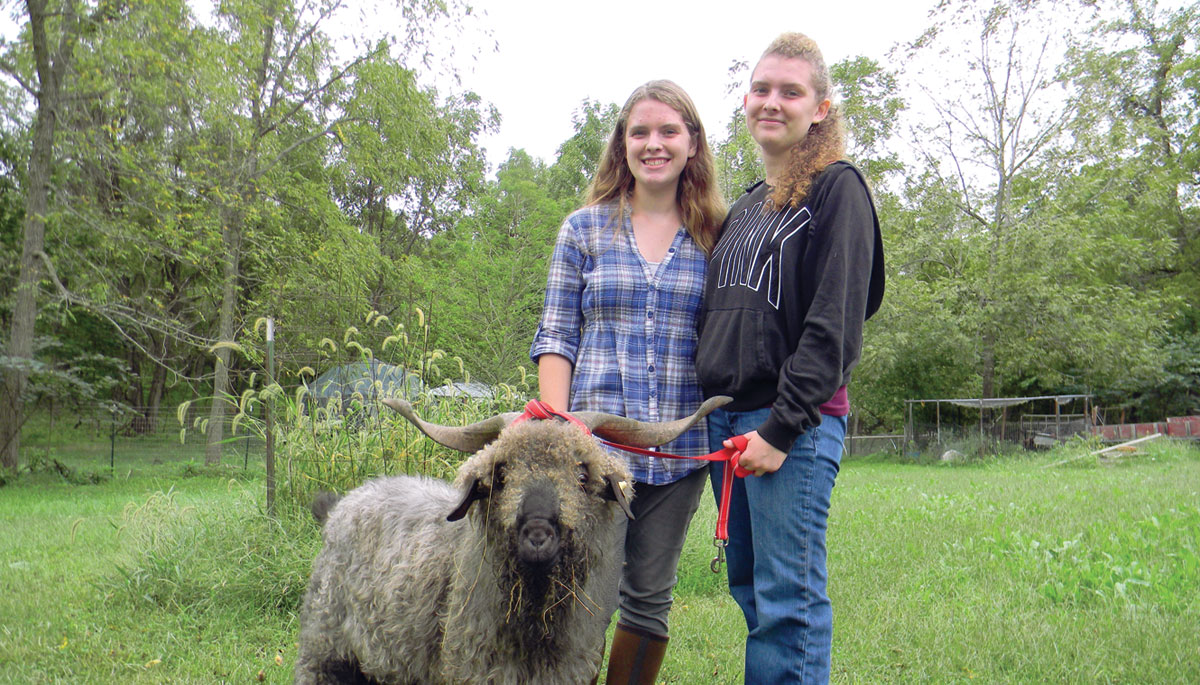
Among the hills, creeks and timbers of the beautiful Ozarks in Barry County, Cherry Warren has successfully grown and maintained a farm operation which he has managed with a vision of deep diversity. Cherry, who has always had a love for farming, got his start with the ownership of 137 acres in Exeter, Mo., in 1965. “There was a little house on the property with two small bedrooms. That’s where we lived for the first few years. Those were some of the best years of my life,” said Cherry, speaking of wife, Ann, and their two young daughters who are now grown with families of their own. Since that time, Cherry has kept beef cattle as a source of income and to help pay for his property as his operation has developed and grown over the years. “When I wanted to buy a piece of property, I made sure I had cattle to put on it. With cattle there is always a payday.”
Besides cattle, Cherry believes in sustaining a balance with crop and pasture management as well, “I try to stay pretty diversified between wheat, corn, fescue seed, steers and momma cows. It gives you a lot more flexibility if you don’t have all your eggs in one basket.” He also asserts that wheat is a safe crop, “Even during the drought of the ’50s, the best crops we had were wheat crops. Wheat is an easy grain to grow.” Cherry has been growing corn since 2008 as an opportunity to clean up pastures thick with hot fescue. First, he completely rids a field of the fescue, then he plants corn for a season (and maybe another crop of rye or wheat for small grain or winter pasture) and then establishes new fescue for pastureland, hay and seed. To keep the soil fertile, he spreads chicken litter when available and never bales corn stalks, “If you bale the stalks, you are taking most of the fertility of the soil away from the field. You will have to put more money into fertilize to put it back.” Cherry has been happy with the results of a variety of fescue called, “Estancia” which is available at the Missouri Southern Seed Company in Rolla, Mo. It utilizes an endophytic fungus called “ArkShield” developed by researchers at the University of Arkansas.
To keep expenses down, Cherry contracts the planting and harvesting of the corn crop and other chores that require equipment that he doesn’t already own. He does harvest all his own hay, and maintains combines he owns for seed harvesting.
Amid the drought, Cherry has added strategies to help keep the operation running productively. “I’ll spend a lot of money to make sure the cattle always have water. I’ve invested in wells and waterlines to put waterers in pastures without running water,” he said, not relying on ponds. He has also utilized cool-season crops such as rye and wheat for winter pasture. He has been very impressed with a set of yearling calves that have not only maintained their weight, but have gains of 2l pounds per day with nothing but a field of ryegrass through the entire winter. “This has been an extremely mild winter, but these calves have thrived this year, and I haven’t fed them grain or one bale of hay.” Cherry has been happy with this experience, not only because of the savings in feed and forage, but for the ease of maintenance. “I drilled the rye in the fall at $38 an acre (seed and drilling), it’s easy. Other than that I give them free-choice salt and mineral.”
Angus is Cherry’s beef breed of choice. Though he does have some mixed breed cows, he appreciates Angus traits that have improved through good breeding over the last two decades, “I look for easy fleshing cattle. I like cows that are thick bodied and good milkers.” He has been building a strong herd by keeping his own heifers, and also by purchasing replacement heifers from Kenny Elbert Angus farm in Wentworth. Cherry is implementing synchronized artificial insemination with these heifers and using his own stock of bulls for clean-up breeding. He has been happy with the quality of stock from a tried and true AI Angus bull, “878,” which is known for calving ease and producing good cows. Cherry maintains records on his cattle and EPDs which are beneficial in providing good information when selling bulls raised from his own stock.
Cherry and Ann have enjoyed living in rural Exeter and being a part of the community. Though Cherry works long hours in his agricultural endeavors, he has had a long career of working with farmers and the community through his years in banking and as County Commissioner for Barry County. He added that he has always sought advice and perspective from other farmers and experts to help him when implementing something new or working through agricultural dilemmas.







